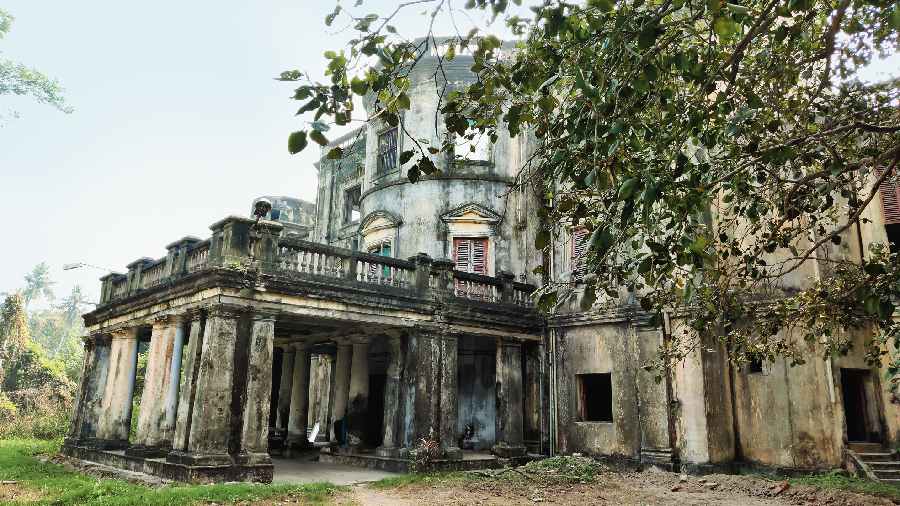The project to restore the 230-year-old Roxburgh House at the Indian Botanic Garden has been revived.
Roxburgh International Trust (RIT), a charitable organisation, is driving the new initiative to restore the building, where lived William Roxburgh, hailed as the father of Indian botany. Consultant firms Simpson and Brown Architects of Edinburgh and Alleya and Associates of Calcutta are partnering the project.
A memorandum of understanding has been signed with the Botanical Survey of India, which owns the garden in Shibpur and its historic buildings, for the restoration and adaptive reuse of Roxburgh House and other important structures in the compound.
Sources said the earlier proposals to restore the house fell through mainly because of lack of funds.
Called the Roxburgh International Hub Project, it aims to “revitalise the Indian Botanic Garden and promote it as a leading cultural, educational and leisure destination”, said Nilina Deb Lal, programme director of the project.
Roxburgh House, the Old Herbarium and the Old Seed Store form the historic core of the garden. “The project envisages restoring and rehabilitating this ensemble of heritage buildings as the core of a reinvigorated public engagement programme,” said Lal.
The project also proposes to start a ferry service across the river Hooghly to link the garden with Calcutta. Roxburgh House is situated right next to the western bank of the river.
It will also build visitor and leisure facilities in the rehabilitated heritage buildings and create pavilions which will be used for the study and exploration of climate change issues.
Chris Smith, a trustee of Roxburgh International Trust, while talking about the importance of the project, said: “Buildings such as Roxburgh House and the Herbarium embody a huge story of past importance and future potential. Calcuttans will be able more easily to visit the garden and, through the Roxburgh International Hub’s facilities, learn from and participate more in the garden while better enjoying it.”
Much of the knowledge based on the more than two centuries of work at the Indian Botanic Garden will contribute to India’s contribution to resolving the climate crisis,” said Smith, a trustee of Roxburgh International Trust.
When asked about the funding, particularly in the light of prior initiatives for revival falling through because of lack of funds, Smith said: “We are now at a propitious moment where partnerships with World Monument Fund and Commonwealth Heritage Forum are emerging. It requires only a small amount of seed corn funding — say £50,000 — to open the way for these and other partners to generate the larger sums needed before we can get on site.”
Besides, RIT proposes to raise funds from the expat population who have strong links to the garden and Calcutta, along with those who will contribute to the cause of climate change.
